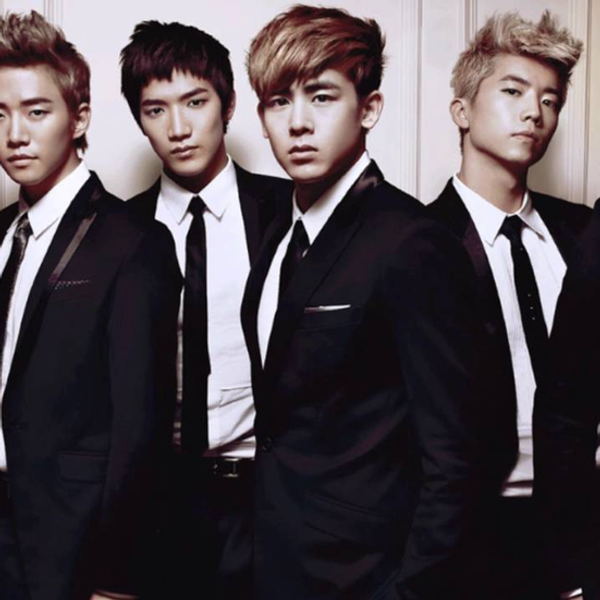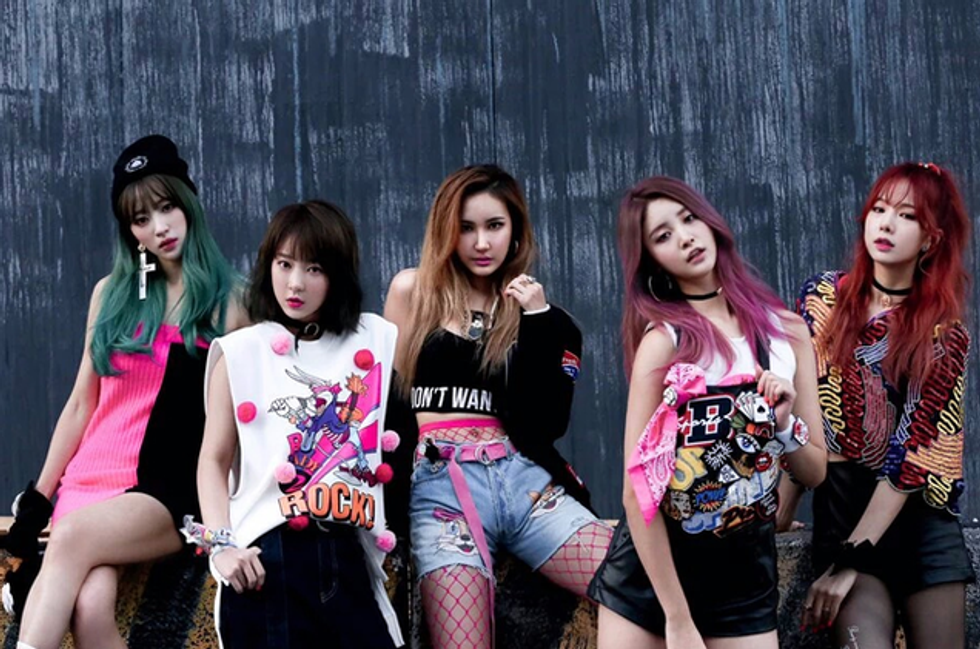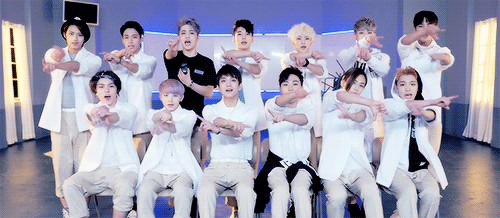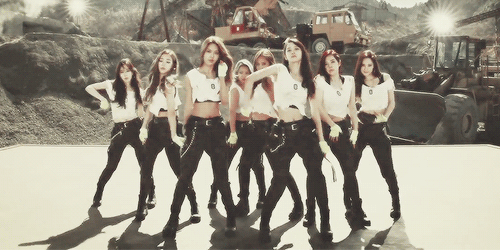I have an obsession. Some people might be embarrassed, but at this point I’m in too deep; I can’t bring myself to care. I would call it a “dirty little secret,” but it is not little, or a secret. The obsession? K-pop.
K-pop is, according to Wikipedia, “a musical genre originating in South Korea that is characterized by a wide variety of audiovisual elements. Although it comprises all genres of "popular music" within South Korea, the term is more often used in a narrower sense to describe a modern form of South Korean pop music covering a range of styles including dance-pop, pop ballad, electropop, R&B and hip-hop music.” It also encompasses other forms of Korean media, such as K-dramas, variety shows, movies and online comics.
Mainly, though, I’m into the music. Boy groups, girl groups, whatever--I’m in love with all of it. My family and friends know more about K-pop than they probably care to because I can never shut up about. I’m notorious for never knowing any popular songs because I rarely listen to English music. I’m not ashamed of this — I just don’t have any interest. For some reason, Korean music and TV programs make me happy, so I focus on that.
Although there are solo acts, duos and trios, K-pop is primarily known for girl groups or boy groups. They can have anywhere from four to 13 members (that’s the biggest group I’ve encountered, at least), and are trained by companies before they’re able to debut. The range of training time can vary wildly. One group that I’m a fan of, twice, has one member that trained for approximately six months before debut while another did so for 10 years.
A lot of people learn this and come to the conclusion that K-pop is manufactured and fake. While I agree that everybody can have their own opinion, those statements always make me feel disgruntled. I think making blanket assumptions about hundreds of Korean musicians is harmful not only to the industry but to the artists themselves.
It’s true that these companies have very specific methods of training and promoting their stars (called “idols” in the world of K-pop), and that it can be very intensive. There a lot of rules these idols have to follow (dating bans, diet plans, restrictions on how they spend their time, etc.) and some companies have been known to treat their singers or actors unfairly. However, the unfair companies and those under them are a small, though sometimes very popular, portion of the K-pop population.
Even though the training is hard and there are extremely specific rules for each idol to learn, saying that these companies are merely a “factory” completely discounts the hard work all these people put into their craft. Girls and boys who want to debut put in months and years of their life, sometimes giving up their childhood, in an effort to follow their dreams. They know a lot of the things they’re giving up. In fact, they see it, experience it, when their friends get to do things they don’t because they have practice or need to go to a meeting.
Another critique of K-pop is that the artists aren’t actually connected to the music. This is something that I can partially concede to. Personally, I don’t care too much whether a group or artist wrote their own songs, as long as the music is enjoyable (however I do love it when they are involved in writing or producing their releases). The good news is that this is a critique many of the companies have been listening to because more and more groups and soloists are writing, producing, and composing their own music, either partly or almost entirely by themselves. Some groups are also self-choreographing their songs (because every K-pop single needs a dance to go with it).
On top of that, K-pop is so much more than just the music. It's the dance, it's the appearance of the members — it's the variety shows they appear on to promote themselves, and the "fan service" (showing aegyo, or acting cute, blowing hearts and kisses, and "skinship" such as members hug each other are some examples). They're able to show these things at fan meets or broadcasting themselves online.
K-pop is also the image that each group and the members within it give off. There are some groups who have a "tough" image. Others are cute, sexy or "refreshing" (which basically means they have a positive, upbeat attitude and sound). Many groups try many concepts, either to find the right fit for them or to prove they can cover whatever type of song they want and still succeed. Roles are given or naturally taken on by some idols within groups as well. Every group has a leader (usually, the oldest member, though not always), and a maknae (the Korean word for the youngest member of a group). One member is usually very cute while another is tough. There are many other roles (usually taken on naturally because of the specific person's personality), but often they intermix between group members, and--with the exception of the leader and the maknae — a role can be filled by more than one person.
When an idol group wins an award or is successful, their happiness is palpable. Everyone has their own passions, their own taste in music. Mine happens to be a little more… unique compared to other Americans, but K-pop is a growing industry, and more people are becoming fans each year. Love it or hate it, it’s certainly a phenomenon that will intrigue many for years to come.


























